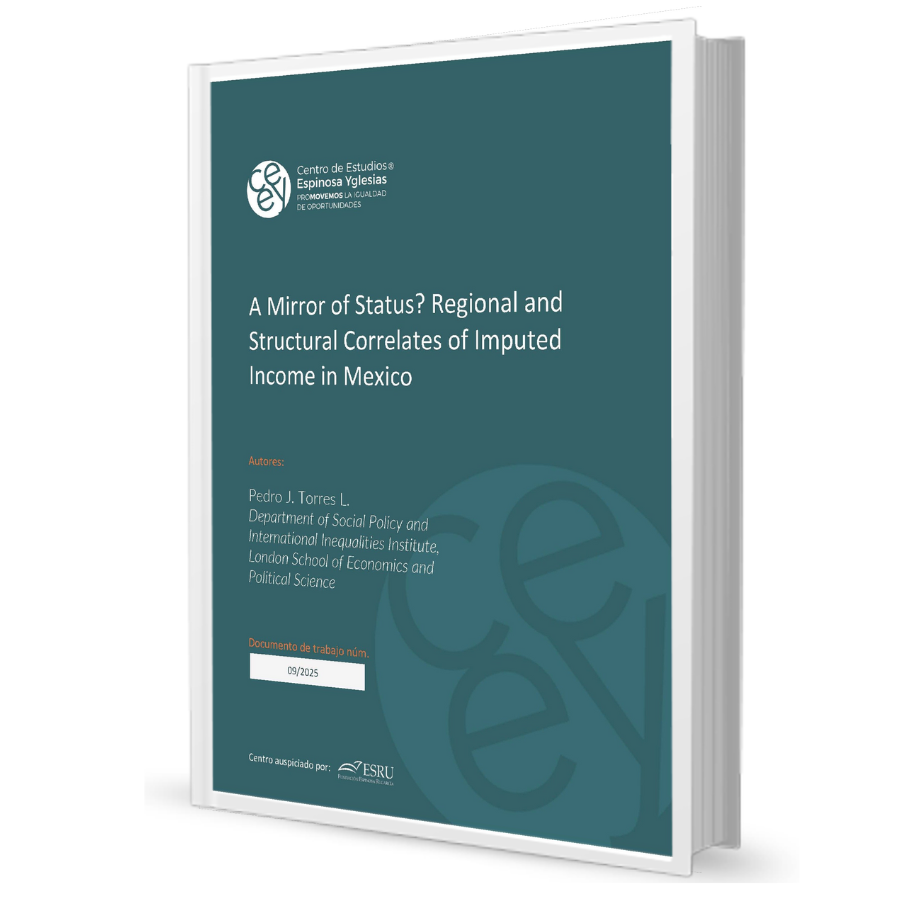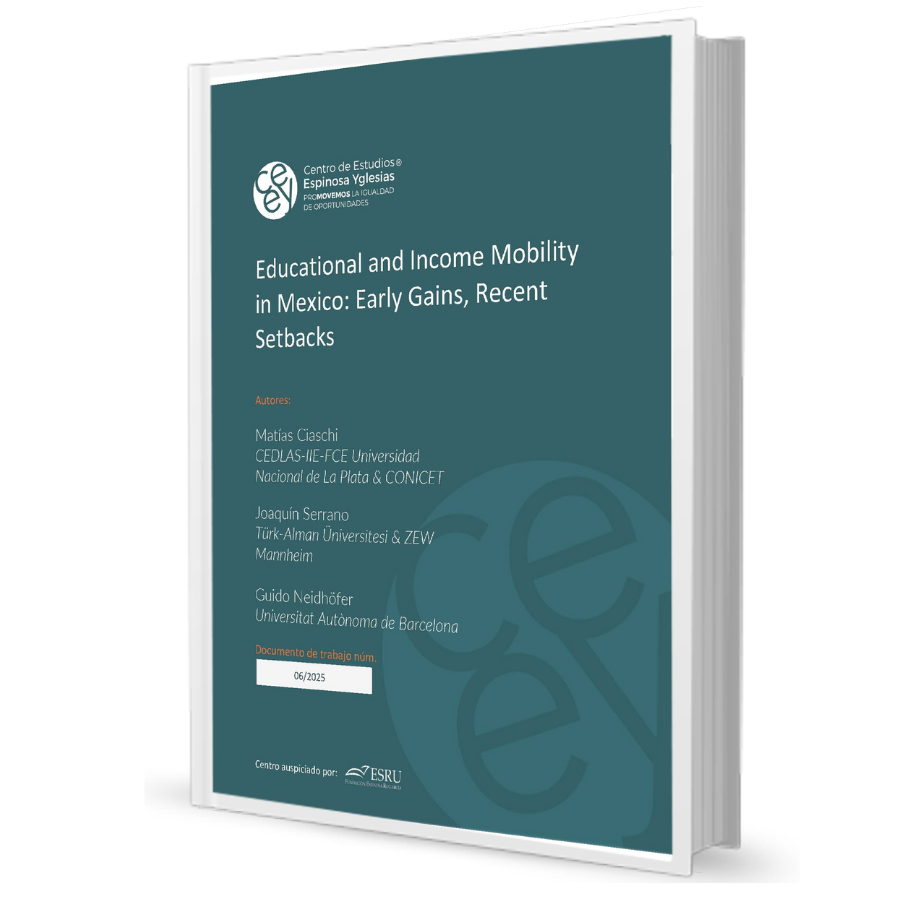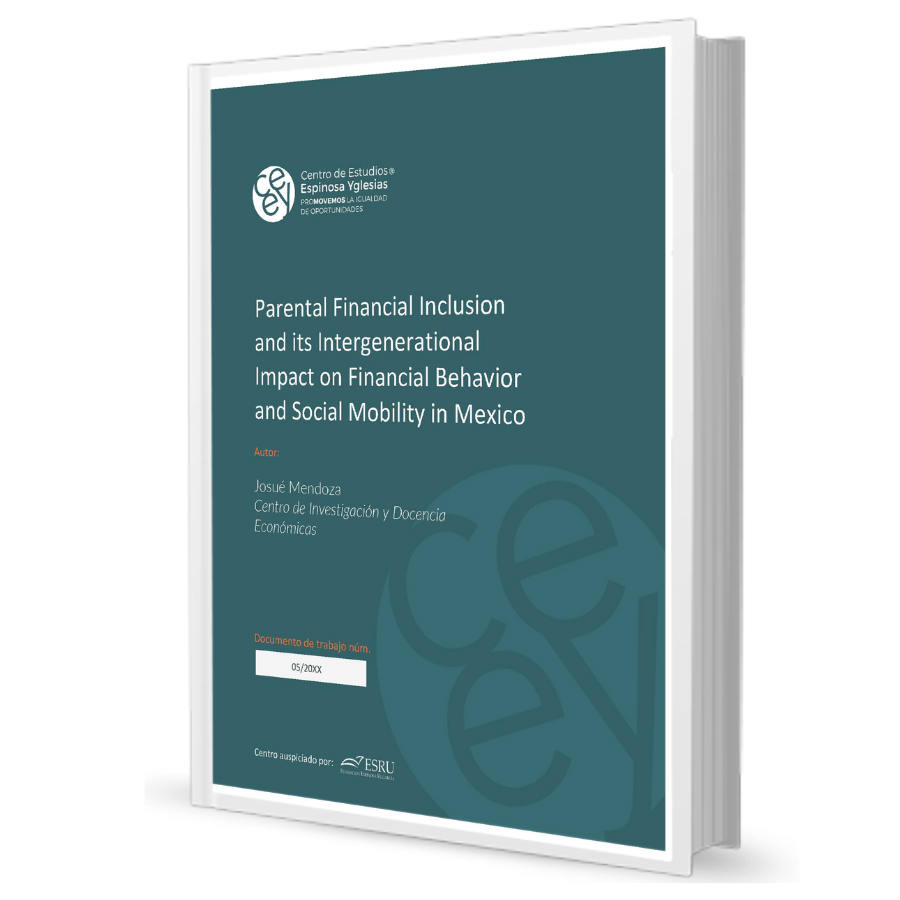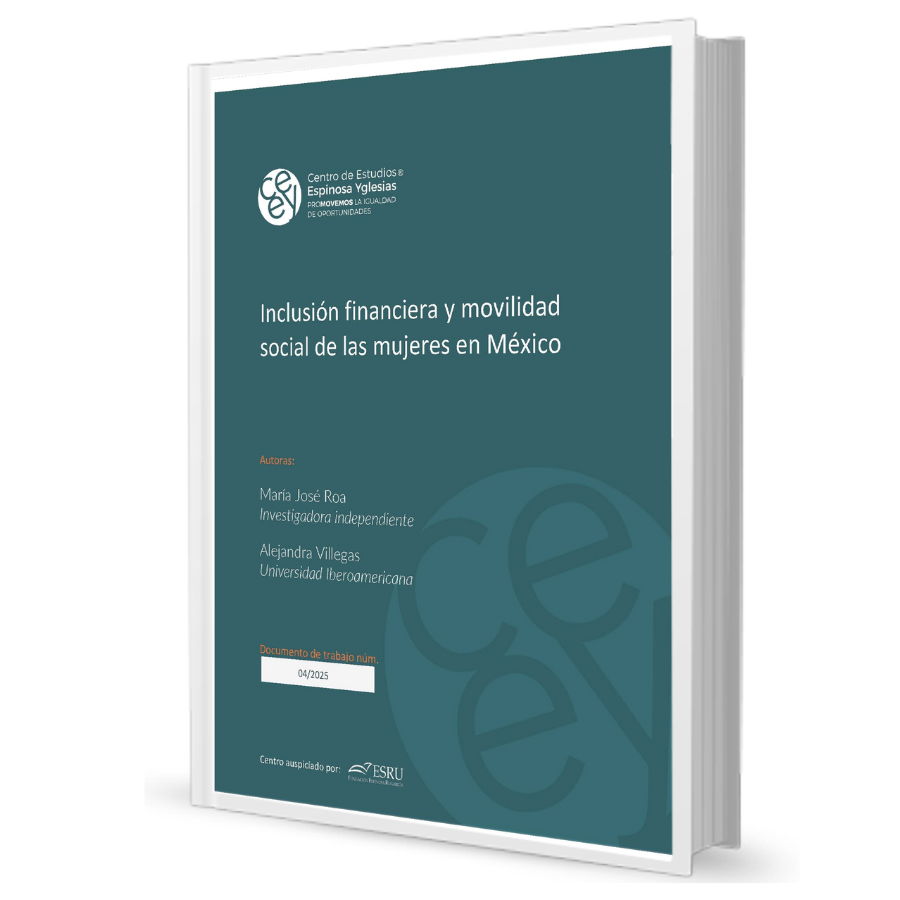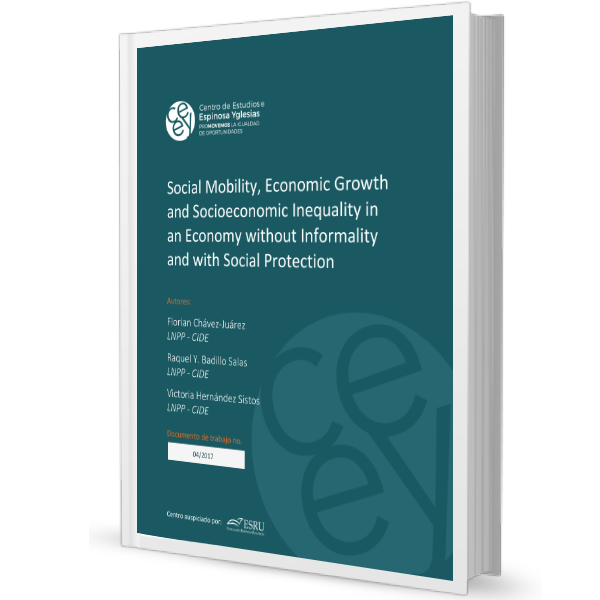
Social Mobility, Economic Growth and Socioeconomic Inequality in an Economy without Informality and with Social Protection
Florian Chávez-Juárez
Raquel Yunoen Badillo Salas
Victoria Hernández Sistos
Documento de trabajo CEEY no. 04/2017
Mexico is characterised by low economic growth, high income inequality and low intergenerational mobility. These outcomes are likely to be linked to each other. In this study we develop an agent-based model allowing us to study the effects of a radical change in the Mexican Social Security System on inequality, social mobility and economic growth. In particular, we study the effect of moving from the currently implemented dual social security system to a universal system paid through taxes rather than contributions of formal workers. Our model includes traditional elements such as families optimising their utility and firms optimising their profits, but also a series of other processes such as education dependent fertility, assortative mating and search frictions in the labour market. Our baseline model reproduces the actual situation in the Mexican economy quite reasonably and allows us to carry out the simulation of policy changes. The results of this simulation exercise show relatively modest effects in terms of inequality and social mobility. GDP growth is substantially higher under the new policy. This GDP gain is essentially due to an increased proportion of formal firms once the contributions to social security are dropped.

